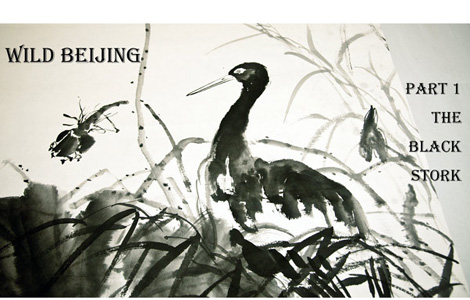Truth about feng shui
Updated: 2013-06-28 13:02
(chinaculture.org)
|
||||||||
Fengshui (also known as geomancy with feng meaning wind, and shui, water), a special Chinese architecture tradition that prevailed especially in ancient times, usually links the whole process from site selection, design, and construction, to interior and exterior decoration.
Fengshui has its roots in the Chinese reverence for nature and belief in the oneness of all things. The assumption is that the key to living a harmonious life is for people to reflect the balance of nature in their daily lives. This is most easily understood by the following concepts: the Yin-Yang principle (concerning opposing elements), Qi (regarded as the source of the world), and the Five Elements - Wood, Fire, Earth, Metal, and Water.
The history of Fengshui can be dated back to 6,000 or 7,000 years ago, when the ancient tribes preferred to settle down in places with abundant water for convenience and agricultural purposes. For instance, Banpo Relics in North China's Shaanxi Province is at a favorable site selection with mountains and water nearby.
Analyzed from the extant relics, ancient Chinese divided villages into several sections according to different functions. In Banpo, graveyards were separated from the residential areas, which gradually developed into the distinction of dwellings for the living and the dead.
All capital cities of China followed rules of Fengshui for their design and layout. The tombs of kings in the Shang Dynasty (16-11th century BC) clearly showed that the river was very significant in site selection.
A zigzagging river wound through the Shang Dynasty capital (today's Xiaotun Village, two kilometers away from Anyang in Central China's Henan Province ). The dwellings of both the noble and the ordinary people, and the tombs of the noble were all located along the river's concave bank.
According to Fengshui, the area surrounded by water can bring good luck, however, the convex bank is considered ominous.
The principle of "facing the south" is not only deeply rooted in traditional culture but also enjoys a scientific basis. According to I Ching, the emperor should sit right in the north and face the south to handle official issues. Different from the Western perception towards orientation, ancient Chinese held that the front was the south, the rear was the north, the left was the east, and the right was the west. In addition to this cultural tradition, physical environment was another decisive factor.
As an indispensable source of life, sunlight shines upon China from the south because geographically China is in the Northern Hemisphere. Furthermore, in terms of monsoon, cold and dry wind from the north blows heavily in winter and warm and wet wind comes from the south in summer. Therefore, ancient Chinese buildings were designed to face a river in the south while against hills in the west, north, and east.
In Fengshui, there are also four animals connected with the four cardinal points and seasons: the Black Warrior (Xuanwu, part tortoise and snake), symbolizing the north and winter; the Green Dragon (Qinglong), the east and spring; the Red Bird (Zhuque), the south and summer, and the White Tiger (Baihu), the west and autumn. These four animals have been worshiped as deities guarding cities, towns, villages, and dwellings since the time of ancient China.

 'Taken 2' grabs movie box office crown
'Taken 2' grabs movie box office crown
 Rihanna's 'Diamonds' tops UK pop chart
Rihanna's 'Diamonds' tops UK pop chart
 Fans get look at vintage Rolling Stones
Fans get look at vintage Rolling Stones
 Celebrities attend Power of Women event
Celebrities attend Power of Women event
 Ang Lee breaks 'every rule' to make unlikely new Life of Pi film
Ang Lee breaks 'every rule' to make unlikely new Life of Pi film
 Rihanna almost thrown out of nightclub
Rihanna almost thrown out of nightclub
 'Dark Knight' wins weekend box office
'Dark Knight' wins weekend box office
 'Total Recall' stars gather in Beverly Hills
'Total Recall' stars gather in Beverly Hills
Most Viewed
Editor's Picks

|

|

|

|

|

|
Today's Top News
US Senate approves landmark immigration bill
US collects Internet data on citizens
More Americans see Snowden as patriot: Poll
Visit aids 'trust-building process'
Crowds cheer gay marriage decision
Industry enjoys profitable month
China's civil servants top 7 million
King of Pop returns
US Weekly

|

|








